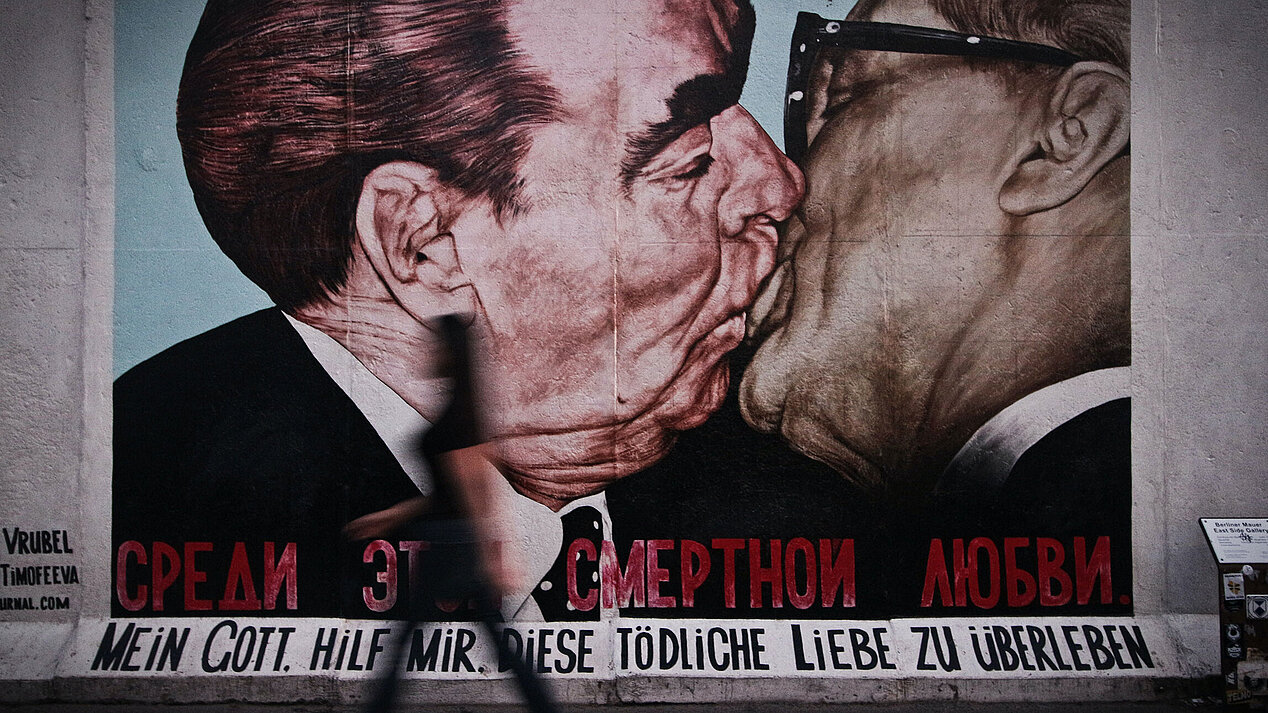At the beginning of my lecture, especially if I don't know my audience, I like to ask a simple question. In Chişinău (Kishinev) it was: what is the first feeling that we humans can experience? It was followed immediately by this answer:
Regaining control functions as a political slogan because it is based on the fact that we as citizens are influenced in our decision-making powers. The truth is that the supranational institutions are not yet able to cope with the challenges of the 21st century and the National Democrats are no longer able to do so. Currently, no real shift in formative power can be observed at the EU level.
In Favour of a Policy of Proximity
As citizens, we must develop our power to make decisions at a supranational level. That doesn't mean that we should only make decisions at a higher level; on the contrary: it is imperative that we create a methodical and meaningful link between the local environment, in which a 'policy of proximity' and interaction function smoothly, and the transnational level, at which coordination is becoming ever more urgent. This is the only way to meet the fear that populist parties have appropriated for their purposes.
The concept of a 'policy of proximity' was coined by Ada Colau, the Mayor of Barcelona. Its purpose was to tailor the city's institutions to the needs of its residents, and not vice versa. The 'Solidarity Cities' network has been built up on this. Cities have linked to one another throughout Europe to implement a policy of proximity at a local level and promote it transnationally. Contrary to the rather hostile attitude of the nation states, some of these cities have been willing to accommodate refugees. The cities in this network are looking for a solution by promoting solidarity rather than isolating themselves.
It is imperative that we create a methodical and meaningful link between the local environment, in which a 'policy of proximity' and interaction function smoothly, and the transnational level, at which coordination is becoming ever more urgent.
Europe can and should be a testing ground for these participation formats. Currently, civil society in Europe is still often organised at a national level. There are, however, initiatives. One recent example is the alliance 'Citizens take over Europe', which appealed to the German Chancellor on the occasion of Germany's turn to serve as EU Council President not to let the planned 'Conference on the Future of Europe' turn into some fake public participation, but instead give citizens a greater say.
Germany has an important role to play in this respect and it would be desirable if especially now, when due to COVID-19 all sources of finance are being pumped into economic development, we do not lose sight of promoting democracy, culture and civic engagement. Promoting citizens to organise themselves and take over responsibility for the common good is at least as important for democracy as safeguarding jobs. A love of experimenting is required if we wish to find a new approach. But the COVID-19 pandemic has also taught us that an exchange in digital space is not perfect; it is, however, possible and makes it easier to transcend boundaries and hierarchies than many analogue conferences would permit.
What gives us hope along this path? On the last evening of my tour I spoke to representatives from civil society organisations in the Transnistria region. I had previously been warned that this might be difficult and that no one would dare to ask questions. But it turned out differently. I was overwhelmed with questions after having spoken for an hour on European civil society initiatives, on the crises in the EU, the emotions connected with Brexit, xenophobic nationalism, the never-ending catastrophe in the Mediterranean, the uncertainty that many people feel and the hope that emanates from new movements.






![illustration: edeos [Translate to english:]](/fileadmin/Content/images/mediathek/blog/Forum_Blog/ifa-forum_stefan-weinert_die-stimme-der-stillen_illustration_edeos.jpg)
